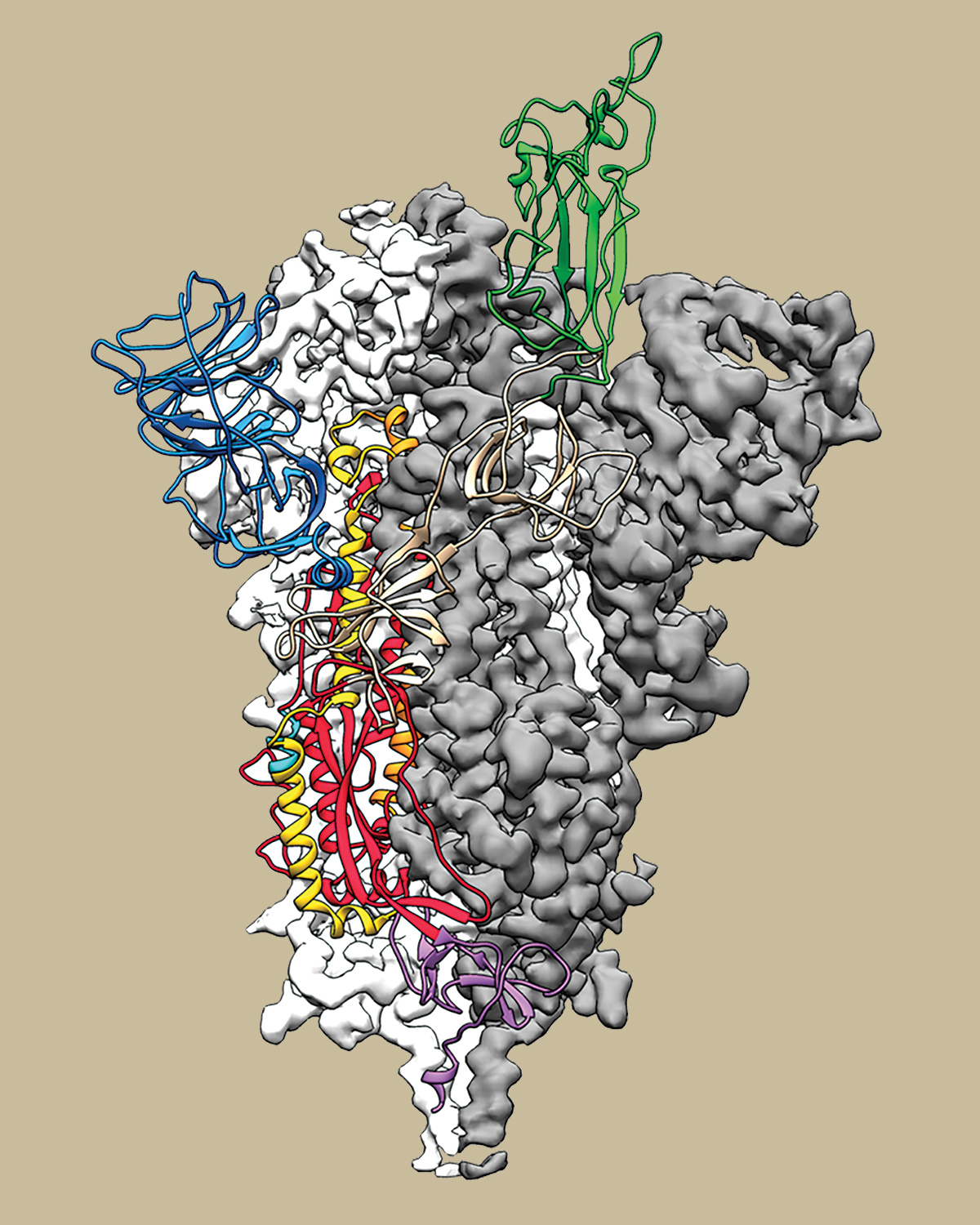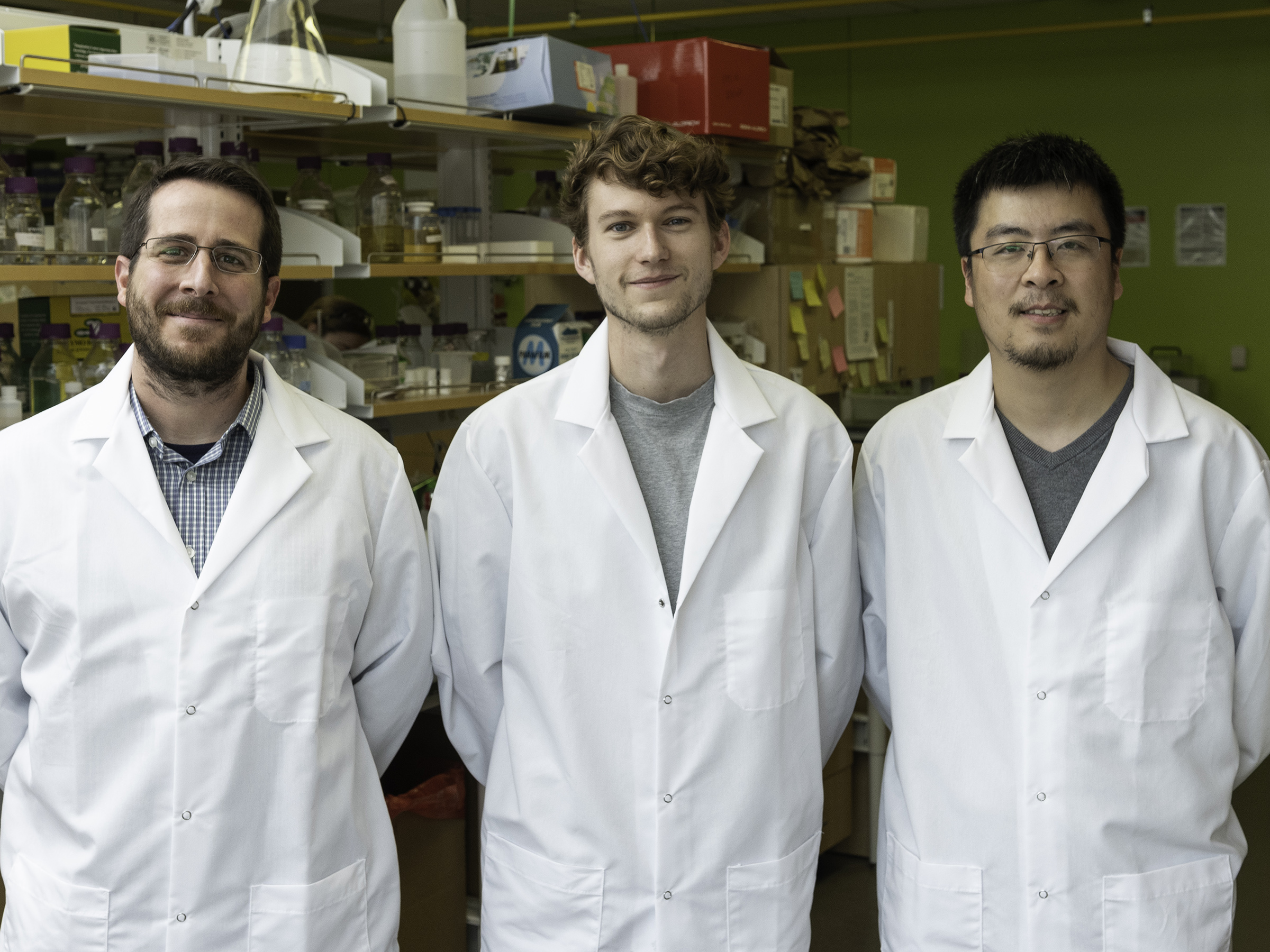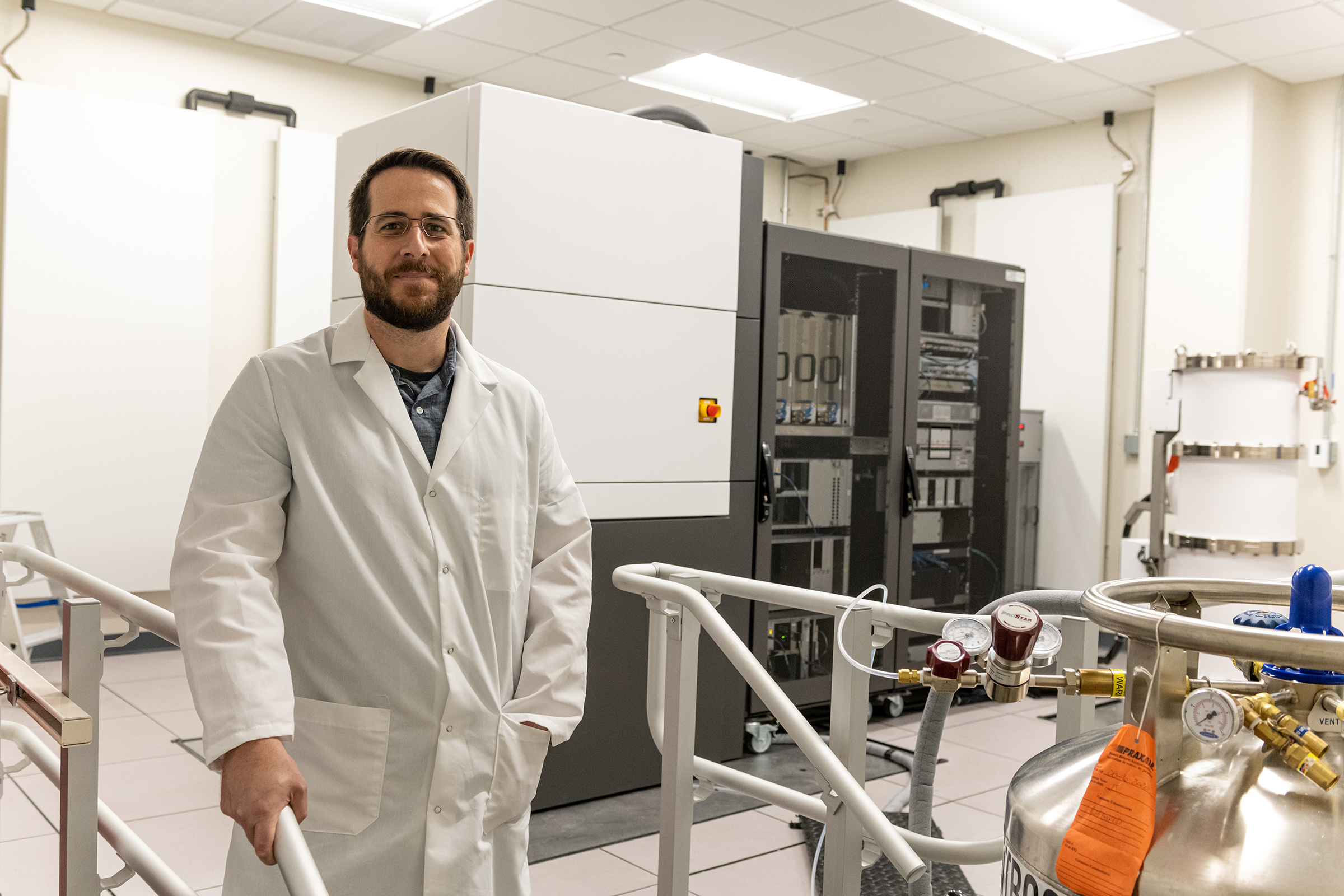Jason McLellan Receives Inaugural Award To Recognize Research Impact
A biologist at UT Austin who played a key role in the development of COVID-19 and RSV vaccines has received honors for the far-reaching impact of his research.
The university’s inaugural President’s Research Impact Award was awarded to Jason McLellan, the Welch Chair in Chemistry and a professor in the Department of Molecular Biosciences. McLellan was honored Thursday at a ceremony with the award. He and his research team figured out how to produce a stable version of the coronavirus spike protein used to develop the leading COVID-19 vaccines. During the first year of vaccinations, nearly 20 million deaths were prevented because of COVID-19 vaccines, many of them featuring the McLellan Lab’s technology.
President Jay Hartzell established the award this year to recognize university researchers whose scholarly or creative endeavors have changed lives and the way we look at and understand the world.
“Jason’s work has not only saved lives but also saved our way of life,” Hartzell said. “This award speaks to our aspirations as Longhorns: to aim high, push the boundaries of knowledge, and contribute solutions to some of the greatest questions and challenges facing society, as we strive to become the highest-impact public research university in the world. Jason embodies that, and I am honored to present the inaugural award to him.”
McLellan said he moved his lab in 2018 to UT Austin because it invests in innovative instrumentation and core facilities needed to advance science. Specifically, UT Austin is home to the Sauer Structural Biology Laboratory, which is equipped with one of the best electron microscopes in the world and cryo-EM technology capable of making atomic-scale 3D models of cellular structures, molecules and viruses.
“Science is a team sport, and hundreds, even thousands of people worldwide helped make the development of the COVID vaccines possible,” said McLellan, who has won several other scientific honors for his work. “We can be very proud that many of those people – from postdocs to research administrators to the facilities staff – are here at UT.”

The spike protein mapped in the UT Austin Sauer Lab for Structural Biology.
“Jason’s work has not only saved lives but also saved our way of life,” Hartzell said. “This award speaks to our aspirations as Longhorns: to aim high, push the boundaries of knowledge, and contribute solutions to some of the greatest questions and challenges facing society, as we strive to become the highest-impact public research university in the world. Jason embodies that, and I am honored to present the inaugural award to him.”
McLellan said he moved his lab in 2018 to UT Austin because it invests in innovative instrumentation and core facilities needed to advance science. Specifically, UT Austin is home to the Sauer Structural Biology Laboratory, which is equipped with one of the best electron microscopes in the world and cryo-EM technology capable of making atomic-scale 3D models of cellular structures, molecules and viruses.
“Science is a team sport, and hundreds, even thousands of people worldwide helped make the development of the COVID vaccines possible,” said McLellan, who has won several other scientific honors for his work. “We can be very proud that many of those people – from postdocs to research administrators to the facilities staff – are here at UT.”

Jason McLellan, with graduate student Daniel Wrapp and postdoc Nianshuang Wang, working together at UT Austin in 2020.
To most of the world, it seemed as if the vaccines were developed at warp speed, but in reality, McLellan and his colleagues had been studying coronaviruses for years.
In 2008, McLellan began work as a postdoctoral fellow at the Vaccine Research Center at the National Institutes of Health, where he teamed up with Barney Graham, former deputy director of the center. Their research applied tools of structural biology to develop an RSV vaccine and, later, coronavirus vaccines. These efforts would eventually prove critical to the development of COVID-19 vaccines.
“Working with Jason has been one of the most fulfilling scientific relationships of my career,” said Graham, who is now a professor at the Morehouse School of Medicine in Atlanta. “Gradually chipping away at the structural features of RSV and SARS-CoV-2 was instrumental in achieving success with the vaccines. Jason has a brilliant mind, and his dedicated application of science to solving critical public health problems has helped us reach the other side of the COVID-19 pandemic.”
McLellan’s lab is currently working to develop novel vaccine antigens for a variety of viruses. In addition, multiple companies recently concluded successful clinical trials for RSV vaccines that use McLellan’s research and that are expected to be approved as soon as this year, while other companies are using McLellan’s research in vaccines currently undergoing clinical trials.
Going forward, four UT researchers – representing any discipline – will be selected annually to receive the President’s Research Impact Award. Each recipient will be honored with a $10,000 prize and medal to recognize research that has an impact on society, the economy or the human imagination.
The Office of the Vice President for Research, Scholarship and Creative Endeavors will oversee the award nomination and selection process, which is expected to begin late this summer.
Share

Department of Molecular Biosciences


